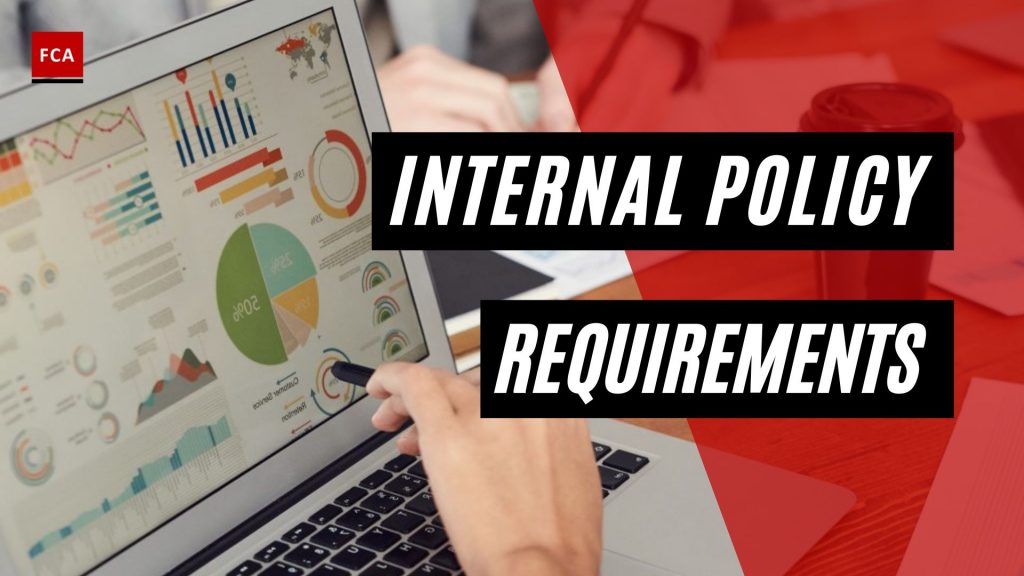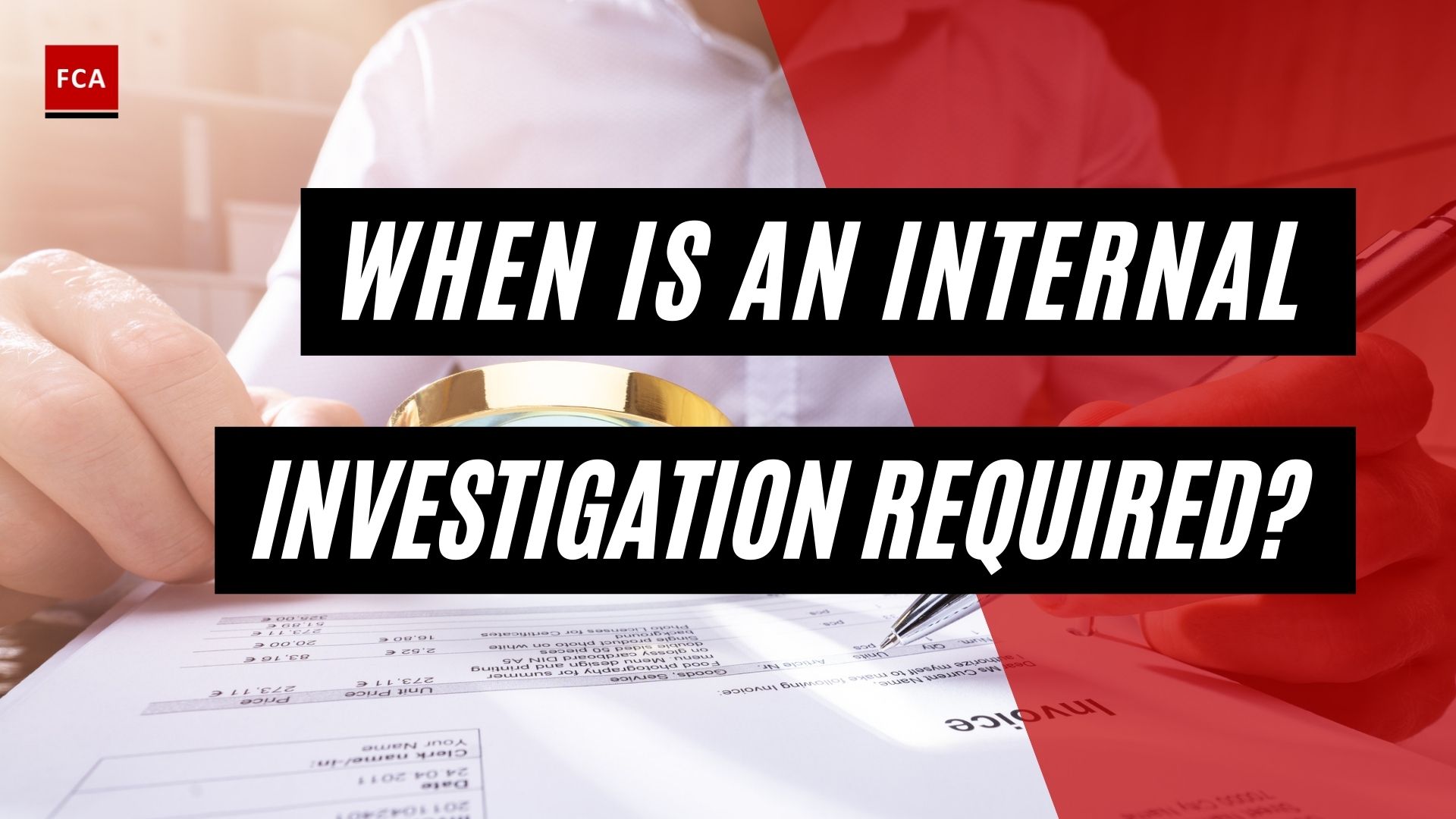The internal policy requirements. Written policies inform employees of expectations from the process and emphasize the company’s commitment to fairness. Well drafted policies explain how an investigation is initiated, how the investigation is conducted, includes proper documentation, and detail how a decision is reached and communicated.

Internal Policy Requirements
An internal investigation is only as good as its proof. It must be thorough and fair. Hearsay has no role in internal investigations. Allegations must be documented and resolved based on reliable evidence. If a company acts based on hearsay or other unreliable evidence, the company’s integrity will be at stake. Similarly, if a company fails to conduct a thorough investigation in line with its policies and ignores significant evidence, the internal investigation will not protect the company.
Organizations subject to some form of fraud or other white-collar crime should examine any concerns received as to whether there is evidence to substantiate such concerns.
Most companies nowadays have competition law compliance programs in place. Not all of them consist of specific protocols on internal investigations. More importantly, some of them do not have enough policies in place that would allow future effective investigations.
Internal policies should ensure that the employees are given knowledge in advance of the possibility that the company carries out unannounced internal investigations and the specific measures that can be implemented for such investigations.
Generally, companies also have specific policies limiting the use of corporate devices (computers, laptops, or phones) to strict work purposes and forbidding their use for personal matters. In particular, all employees should be informed that, in case of suspected irregularities in the performance of their duties, communications may be observed without notice.
Lawful access to electronic documentation of the employees is only possible if the policy had been duly communicated in advance to the employee. In future administrative or judicial proceedings, the evidence collected during the internal investigation would only be rational if the company discovers proof the employee was informed about the existence of the policy, of the restrictions foreseen, and of the scope and nature of the possible monitoring by the employer.

Ad Hoc Action Plan
In case the company doubts that there could have been a violation of competition law, the design of an ad hoc action plan is essential to ensure that the investigation is effective and, simultaneously, that legal guarantees are respected and that the evidence obtained is valid in future judicial proceedings.
The action plan must be comprehensive and structured, setting out the steps to be followed and respecting during all the investigation the rights of the employees, for instance: right of privacy, right of confidentiality, right to have legal assistance from an attorney, or the right to not incriminate oneself.
Although employees’ obligations may differ between jurisdictions, they generally must collaborate with the company when conducting an internal investigation, including their participation in internal interviews and making the devices assigned for professional purposes available for the company to review.
This action plan should be carried out with the highest level of covertness. Therefore, it is recommended that the following elements be evaluated:
Establishing The Scope Of The Investigation
Based on the initial evidence, the company should establish the suspected wrongdoings for investigation and who are the employees that could have been involved. The purpose of the investigation might change because of the findings, but having an initial position on the objective and subjective scope of the investigation is key to taking the next decisions regarding the design of an action plan.
Setting Up A Team
Normally, there are no legal requirements concerning who must carry out this type of investigation. However, several points should be taken into consideration.
Internally, the departments that are typically affected are legal, compliance, and HR.
The support of competition law experts is highly preferable. Their previous experience in investigations and their knowledge of the subject matter is particularly useful for carrying out the interviews or designing the IT searches.
The support of digital forensics experts is also highly advisable in those investigations where reach to electronic documentation is envisaged. Aside from their expertise, as third parties, they could witness that the access to communications was done with all guarantees in case this needs to be proved in administrative or judicial proceedings.
Final Thoughts
Internal policy requirements are mandated by company law and must be approved by management. Company law is frequently derived from what is required by the edicts of the industry or perhaps a trade association. These are not legal regulations or requirements, but they may have the same weight as regulations because they have been mandated by top management. What specific internal policy emerges may be influenced by other organizational requirements such as competition and strategic market positioning.








